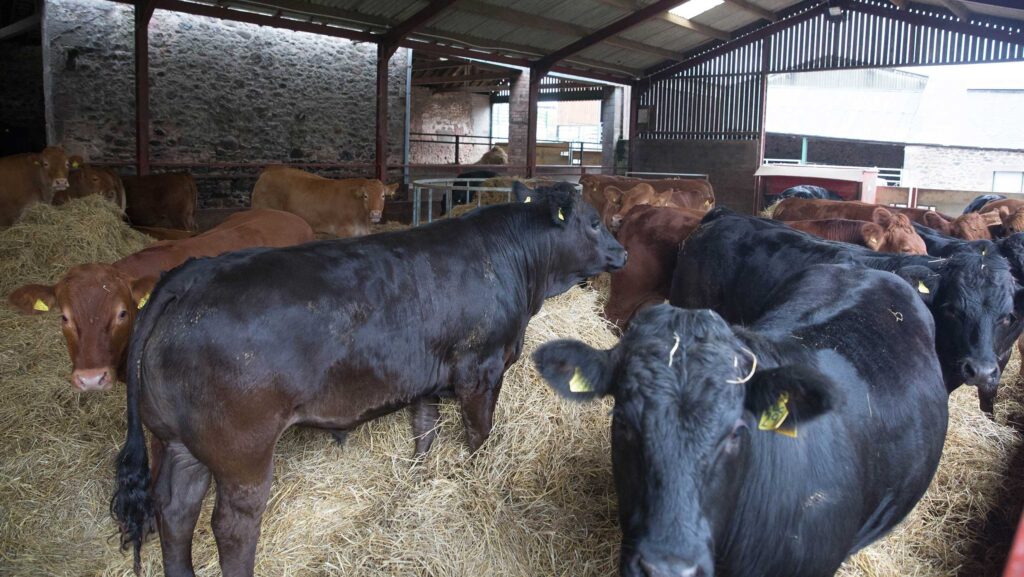Fresh wave of bluetongue cases confirmed in Wales
 © Tim Scrivener
© Tim Scrivener An all-Wales restricted zone for bluetongue serotype 3 (BTV-3) will come into force on Monday 10 November 2025, the Welsh government has announced.
The announcemement follows six new cases of BTV-3 in livestock across Wales – including one in Powys – amid the continued spread of the disease in Great Britain.
The total number of confirmed bluetongue infections in Great Britain since the start of the 2025–26 vector season in July now stands at 141, comprising 127 cases of BTV-3, two of BTV-8, and one mixed BTV-3/BTV-8 case in England, 11 in Wales (seven within the temporary control zone), and none in Scotland.
See also: Bluetongue virus: What to look out for and how to manage it
Ian Rickman, president of the Farmers’ Union of Wales (FUW), said the announcement of the all-Wales bluetongue RZ (see panel below) would come as “a relief to the industry”, after months of disruption caused by differing policies between Wales and England.
He noted that while farmers’ first instinct is to keep disease out, aligning policies across borders is vital for economic stability.
Mr Rickman urged producers to maintain strong biosecurity and consider vaccination to protect livestock, adding that the FUW continues to work with government and industry to remove barriers to vaccination.
RZ ‘makes sense’ – NFU Cymru
NFU Cymru president Aled Jones said moving to a whole country RZ for Wales “makes sense”, especially with temperatures dropping and reduced midge activity.
“The risks of the disease must be balanced against the economic and practical costs of the controls,” he added.
Welsh Conservative rural affairs spokesperson, Samuel Kurtz MS, also welcomed the move, saying it brings clarity for farmers but warning that the bluetongue threat remains.
“Vaccination is still the best defence against the disease, and I urge all farmers to speak to their vets and plan vaccination ahead of next spring,” he said.
The Welsh government said that five of the new BTV-3 cases were detected on premises within the existing temporary control zone (TCZ) in Monmouthshire. A further case was identified near Brecon, Powys. The government says the number of cases is likely to increase as surveillance continues.
Meanwhile, new cases have been confirmed in Cornwall, where veterinary officials in England reported multiple detections of BTV-3 in cattle herds during late October. Further isolated cases have been reported in cattle in Shropshire, Derbyshire and Cheshire in the past week.
Vaccination is key
Farmers are being urged to follow strict biosecurity measures and consider vaccination of their livestock where permitted, if they have not already done so. Three BTV-3 vaccines have been authorised for use under licence by the Veterinary Medicines Directorate.
Bluetongue is a viral disease spread by biting midges and affects ruminant animals such as cattle, sheep, goats, and deer. It is not transmissible to humans and poses no risk to food safety, but it can cause significant losses in livestock herds through illness, abortion, and reduced productivity.
Maps showing the locations of all confirmed bluetongue cases in Great Britain are available on the UK government’s bluetongue case map. Bluetongue is a notifiable disease and livestock keepers must report suspected cases to the Animal and Plant Health Agency immediately on 0300 303 8268.
All-Wales restricted bluetongue zone: What it means for farmers
From 10 November, Wales will move into an all-Wales restricted zone (RZ) for Bluetongue serotype 3 (BTV-3), deputy first minister Huw Irranca-Davies announced today (30 October).
The decision follows evidence that midge-borne transmission is highly unlikely beyond early November and reflects the Welsh government’s ongoing efforts to balance disease control with the needs of the livestock industry.
The move will revoke the temporary control zone and simplify rules across Wales.
Farmers will benefit from the removal of premises-level restrictions and free movement of livestock between England and Wales, restoring trade and easing logistics. Moving animals from the Wales RZ to Scotland will be subject to the Scottish government’s rules on licensing and movement testing.
Culling and additional BTV-3 restrictions will cease, though testing of germinal products and ongoing surveillance will continue to safeguard against new bluetongue strains.
At an industry roundtable with Mr Irranca-Davies on 27 October, sector leaders backed an all-Wales bluetongue RZ, supporting continued livestock movement with England despite the increased bluetongue risk and potential effects. on animal health.
The deputy first minister concluded: “As we move forward, ongoing co-operation and collaboration between farmers, vets, Welsh government and delivery partners remains crucial to minimising the long-term impact of bluetongue in Wales.”
The Welsh government, alongside the Animal and Plant Health Agency and the Pirbright Institute, will continue close collaboration with the farming community to monitor disease spread and maintain Wales’ long-term animal health resilience.
